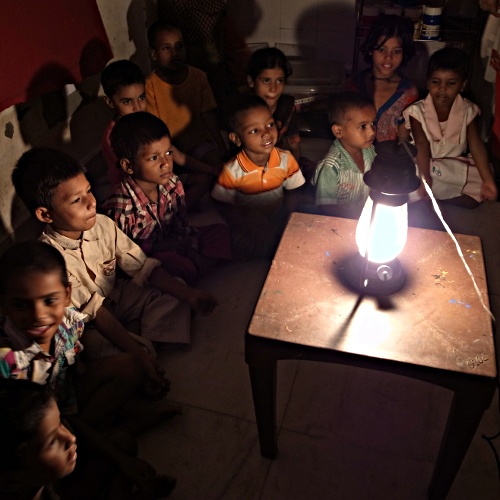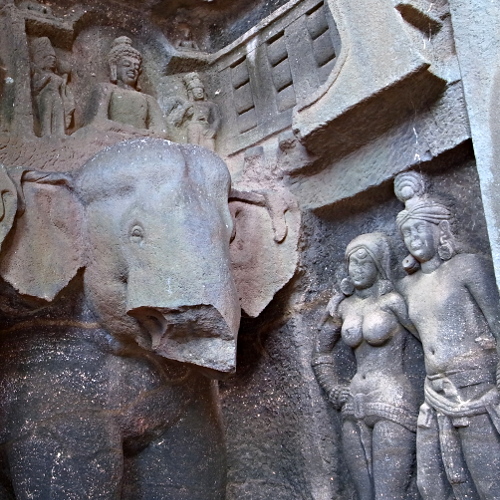Site Notice
Information pursuant to § 5 TMG
Ram Tirtha Dr. Tino Lukaschek
Seyfferstr. 51
70197 Stuttgart
Contact
Phone: ++49 (0) 711 2841912
E-Mail: info[at]tirtha-yoga.de
Responsible for the content according to § 55(2) RStV
Ram Tirtha Dr. Tino Lukaschek
Liability for Contents
As service providers, we are liable for own contents of these websites according to Paragraph 7, Sect. 1 German Telemedia Act (TMG). However, according to Paragraphs 8 to 10 German Telemedia Act (TMG),
service providers are not obligated to permanently monitor submitted or stored information or to search for
evidences that indicate illegal activities. Legal obligations to removing information or to blocking the use of information remain unchallenged. In this case, liability is only possible at the time of knowledge about a specific violation of law. Illegal contents will be removed immediately at the time we get knowledge of them.
Liability for Links
Our offer includes links to external third party websites. We have no influence on the contents of those
websites, therefore we cannot guarantee for those contents. Providers or administrators of linked websites
are always responsible for their own contents. The linked websites had been checked for possible violations of law at the time of the establishment of the link. Illegal contents were not detected at the time of the linking. A permanent monitoring of the contents of linked websites cannot be imposed without reasonable indications that there has been a violation of law.
Illegal links will be removed immediately at the time we get knowledge of them.
Copyright
Contents and compilations published on these websites by the providers are subject to German copyright
laws. Reproduction, editing, distribution as well as the use of any kind outside the scope of the copyright law
require a written permission of the author or originator. Downloads and copies of these websites are
permitted for private use only. The commercial use of our contents without permission of the originator is prohibited.
Copyright laws of third parties are respected as long as the contents on these websites do not originate from
the provider. Contributions of third parties on this site are indicated as such. However, if you notice any
violations of copyright law, please inform us. Such contents will be removed immediately.
Privacy Policy
1. An overview of data protection
General information
The following information will provide you with an easy to navigate overview of what will happen with your personal data when you visit our website. The term „personal data“ comprises all data that can be used to
personally identify you. For detailed information about the subject matter of data protection, please consult
our Data Protection Declaration, which we have included beneath this copy.
Data recording on our website
Who is the responsible party for the recording of data on this website (i.e. the „controller“)?
The data on this website is processed by the operator of the website, whose contact information is available
under section „Information Required by Law“ on this website. How do we record your data?
We collect your data as a result of your sharing of your data with us. This may, for instance be information
you enter into our contact form. Our IT systems automatically record other data when you visit our website. This data comprises primarily technical information (e.g. web browser, operating system or time the site was accessed). This information is recorded automatically when you access our website.
What are the purposes we use your data for?
A portion of the information is generated to guarantee the error free provision of the website. Other data may be used to analyse your user patterns. What rights do you have as far as your information is concerned?
You have the right to receive information about the source, recipients and purposes of your archived
personal data at any time without having to pay a fee for such disclosures. You also have the right to demand
that your data are rectified, blocked or eradicated. Please do not hesitate to contact us at any time under the
address disclosed in section „Information Required by Law“ on this website if you have questions about this
or any other data protection related issues. You also have the right to log a complaint with the competent
supervising agency. Moreover, under certain circumstances, you have the right to demand the restriction of the processing of
your personal data. For details, please consult the Data Protection Declaration under section „Right to
Restriction of Data Processing.“
2. General information and mandatory information
Data protection
The operators of this website and its pages take the protection of your personal data very seriously. Hence,
we handle your personal data as confidential information and in compliance with the statutory data
protection regulations and this Data Protection Declaration.
Whenever you use this website, a variety of personal information will be collected. Personal data comprises
data that can be used to personally identify you. This Data Protection Declaration explains which data we
collect as well as the purposes we use this data for. It also explains how, and for which purpose the
information is collected.
We herewith advise you that the transmission of data via the Internet (i.e. through e-mail communications)
may be prone to security gaps. It is not possible to completely protect data against third party access.
Information about the responsible party (referred to as the „controller“ in the GDPR)
The data processing controller on this website is: Tino Ram Tirtha Dr. Lukaschek, Seyfferstr. 51, 70197 Stuttgart. Phone: +49 (0) 711 2841912. E-Mail: info@tirtha-yoga.de .
The controller is the natural person or legal entity that single-handedly or jointly with others makes
decisions as to the purposes of and resources for the processing of personal data (e.g. names, e-mail
addresses, etc.).
Revocation of your consent to the processing of data
A wide range of data processing transactions are possible only subject to your express consent. You can also
revoke at any time any consent you have already given us. To do so, all you are required to do is sent us an
informal notification via e-mail. This shall be without prejudice to the lawfulness of any data collection that
occurred prior to your revocation.
Right to object to the collection of data in special cases; right to object to direct
3 / 7advertising (Art. 21 GDPR)
In the event that data are processed on the basis of Art. 6 Sect. 1 lit. e or f GDPR, you have the right to at
any time object to the processing of your personal data based on grounds arising from your unique
situation. This also applies to any profiling based on these provisions. To determine the legal basis, on
which any processing of data is based, please consult this Data Protection Declaration. If you log an
objection, we will no longer process your affected personal data, unless we are in a position to present
compelling protection worthy grounds for the processing of your data, that outweigh your interests, rights
and freedoms or if the purpose of the processing is the claiming, exercising or defence of legal
entitlements (objection pursuant to Art. 21 Sect. 1 GDPR).
If your personal data is being processed in order to engage in direct advertising, you have the right to at
any time object to the processing of your affected personal data for the purposes of such advertising. This
also applies to profiling to the extent that it is affiliated with such direct advertising. If you object, your
personal data will subsequently no longer be used for direct advertising purposes (objection pursuant to
Art. 21 Sect. 2 GDPR).
Right to log a complaint with the competent supervisory agency
In the event of violations of the GDPR, data subjects are entitled to log a complaint with a supervisory
agency, in particular in the member state where they usually maintain their domicile, place of work or at the
place where the alleged violation occurred. The right to log a complaint is in effect regardless of any other
administrative or court proceedings available as legal recourses.
Right to data portability
You have the right to demand that we hand over any data we automatically process on the basis of your
consent or in order to fulfil a contract be handed over to you or a third party in a commonly used, machine
readable format. If you should demand the direct transfer of the data to another controller, this will be done
only if it is technically feasible.
Information about, blockage, rectification and eradication of data
Within the scope of the applicable statutory provisions, you have the right to at any time demand
information about your archived personal data, their source and recipients as well as the purpose of the
processing of your data. You may also have a right to have your data rectified, blocked or eradicated. If you
have questions about this subject matter or any other questions about personal data, please do not hesitate
to contact us at any time at the address provided in section „Information Required by Law.“
Right to demand processing restrictions
You have the right to demand the imposition of restrictions as far as the processing of your personal data is
concerned. To do so, you may contact us at any time at the address provided in section „Information
Required by Law.“ The right to demand restriction of processing applies in the following cases:
In the event that you should dispute the correctness of your data archived by us, we will usually need
some time to verify this claim. During the time that this investigation is ongoing, you have the right to
demand that we restrict the processing of your personal data.
If the processing of your personal data was/is conducted in an unlawful manner, you have the option to
demand the restriction of the processing of your data in lieu of demanding the eradication of this data.
If we do not need your personal data any longer and you need it to exercise, defend or claim legal
entitlements, you have the right to demand the restriction of the processing of your personal data instead
of its eradication.
If you have raised an objection pursuant to Art. 21 Sect. 1 GDPR, your rights and our rights will have to be weighed against each other. As long as it has not been determined whose interests prevail, you have the
right to demand a restriction of the processing of your personal data.
If you have restricted the processing of your personal data, these data – with the exception of their archiving –
may be processed only subject to your consent or to claim, exercise or defend legal entitlements or to
protect the rights of other natural persons or legal entities or for important public interest reasons cited by
the European Union or a member state of the EU.
Rejection of unsolicited e-mails
We herewith object to the use of contact information published in conjunction with the mandatory
information to be provided in section „Information Required by Law“ to send us promotional and information
material that we have not expressly requested. The operators of this website and its pages reserve the
express right to take legal action in the event of the unsolicited sending of promotional information, for
instance via SPAM messages.
3. Recording of data on our website
Server log files
The provider of this website and its pages automatically collects and stores information in so-called server
log files, which your browser communicates to us automatically. The information comprises:
The type and version of browser used, the used operating system, Referrer URL, the hostname of the accessing computer,
the time of the server inquiry, the IP address. This data is not merged with other data sources.
This data is recorded on the basis of Art. 6 Sect. 1 lit. f GDPR. The operator of the website has a legitimate
interest in the technically error free depiction and the optimization of the operator’s website. In order to
achieve this, server log files must be recorded.
Request by e-mail, telephone or fax
If you contact us by e-mail, telephone or fax, your request, including all resulting personal data (name,
request) will be stored and processed by us for the purpose of processing your request. We do not pass these
data on without your consent. The processing of these data is based on Art. 6 para. 1 lit. b GDPR, if your request is related to the execution of a contract or if it is necessary to carry out pre-contractual measures. In all other cases, the processing is based on your consent (Article 6 (1) a GDPR) and/or on our legitimate interests (Article 6 (1) (f) GDPR), since
we have a legitimate interest in the effective processing of requests addressed to us.
The data sent by you to us via contact requests remain with us until you request us to delete, revoke your
consent to the storage or the purpose for the data storage lapses (e.g. after completion of your request).
Mandatory statutory provisions - in particular statutory retention periods - remain unaffected.
Processing of data (customer and contract data)
We collect, process and use personal data only to the extent necessary for the establishment, content
5 / 7organization or change of the legal relationship (data inventory). These actions are taken on the basis of Art.
6 Sect. 1 lit. b GDPR, which permits the processing of data for the fulfilment of a contract or pre-contractual
actions. We collect, process and use personal data concerning the use of our website (usage data) only to the
extent that this is necessary to make it possible for users to utilize the services and to bill for them.
The collected customer data shall be eradicated upon completion of the order or the termination of the
business relationship. This shall be without prejudice to any statutory retention mandates.
Data transfer upon closing of contracts for services and digital content
We share personal data with third parties only if this is necessary in conjunction with the handling of the contract; for instance, with the financial institution tasked with the processing of payments.
Any further transfer of data shall not occur or shall only occur if you have expressly consented to the
transfer. Any sharing of your data with third parties in the absence of your express consent, for instance for
advertising purposes, shall not occur. The basis for the processing of data is Art. 6 Sect. 1 lit. b GDPR, which permits the processing of data for the fulfilment of a contract or for pre-contractual actions.
4. Newsletter
Newsletter data
If you would like to subscribe to the newsletter offered on this website, we will need from you an e-mail
address as well as information that allow us to verify that you are the owner of the e-mail address provided
and consent to the receipt of the newsletter. No further data shall be collected or shall be collected only on a
voluntary basis. We shall use such data only for the sending of the requested information and shall not share
such data with any third parties.
The processing of the information entered into the newsletter subscription form shall occur exclusively on
the basis of your consent (Art. 6 Sect. 1 lit. a GDPR). You may revoke the consent you have given to the
archiving of data, the e-mail address and the use of this information for the sending of the newsletter at any
time, for instance by clicking on the „Unsubscribe“ link in the newsletter. This shall be without prejudice to
the lawfulness of any data processing transactions that have taken place to date.
The data you archive with us for the purpose of the newsletter subscription shall be archived by us until you
unsubscribe from the newsletter. Once you cancel your subscription to the newsletter, the data shall be
deleted. This shall not affect data we have been archiving for other purposes.









